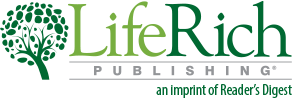Author Resources
Your Book Title: The Basics
by Suzette Conway
Referencing Your Written Work
Your book’s title is, in the simplest terms, how your reference your written work. You’ll use it on the cover, on your web page, in interviews, blog postings, marketing materials, book catalogs, agent submissions, and more. But the title is more than a reference tool. It has a distinct purpose and should not be overlooked as one of the most important aspects of your writing efforts.
Your book’s title is its first marketing and selling tool. It’s what captures a reader’s attention and helps them decide if they want to learn more about it… and these things ultimately lead to the buy decision. The title is also part of what captures the attention of an agent, editor, publisher, the media, book clubs, and book buyers at bookstores and libraries and more!
Finding Your Target Audience
The title also helps your target audience find your book. There are so many books on the shelves (virtual and real shelves). Most potential readers scan the vast selections… rather than evaluating every book one at a time for several minutes. They might give your book a few seconds, less than 10, to capture their attention. Potential readers can tell from the title if it’s meant for them or if it’s something they should pass over when scanning the shelves. They have a logical and an emotional reaction to it. Logically, they surmise from the title if the book’s content is interesting to them – does it solve a problem, speak to a hobby of theirs, feed their love of mystery, fill a need to escape reality for a few hours? Emotionally, the title helps them connect with the content at a deeper, often sub-conscious level. Do they read the title and become outraged, amused, intrigued? Does it make them nostalgic? Will reading it make them feel important, smarter, happier, or hipper? Emotional and logical responses help drive purchasing decisions. It’s true of every product in the world, including your book.
Some authors define the book’s title before they even begin writing, some wait until the manuscript is complete, and some fall in the middle. A good rule of thumb is to develop a strong working title as soon as you can so that you have a way to reference your “forthcoming book”. The working title should meet all the same criteria as the final title, no skimping. To that point, regardless of when you define the title, you should be prepared to research it, edit it, and even discard it completely. Don’t get emotionally attached to it. It has a purpose and it should be refined or replaced repeatedly until it fulfills that purpose… to attract and keep a reader’s interest. There are distinct techniques for creating an effective title that fulfills its purpose. Read other articles here on the Author Learning Center for more details on applying those techniques.
Information provided by the Author Learning Center.
Publishing
Publishing: Fiction
By clicking “Request My Free Consultation”, you are providing your electronic signature, voluntarily authorizing LifeRich Publishing and its affiliates to contact you using a manual or automated telephone dialing system and send you advertisement or telemarketing messages by email or text/SMS/MMS message to the address and phone number you have provided above. You are not required to agree to this in order to buy products or services from Balboa Press. You certify that you are over the age of eighteen (18). You’ll get up to ten (10) messages per month. Standard message and data rates may apply. Click here to view our privacy policy.




